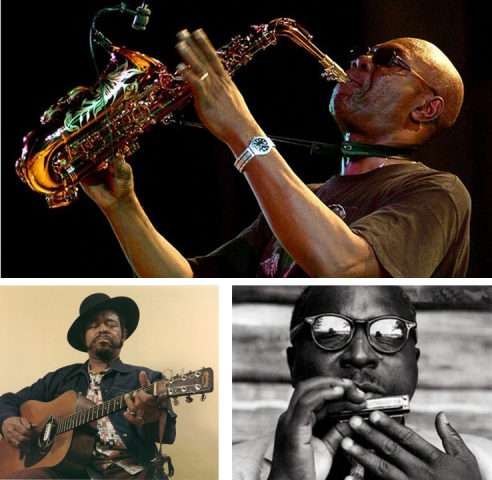This is where jazz has taken the human family—closer and closer together! And it looks really nice that Africa discovered something that unites the human race.

By Jaston Binala.
Everything that existed to say about music has been said? Nah… not until I say something, ha ha. By the way music seems like something that’s genetically transmitted– the same way the African soft heart is. Why do you suppose a true African might cry at both a wedding and a funeral–as if they were the same thing?! It’s their loving, soft heart, the in-built default telling him he was created to live happy on earth, to love, and to lough.
So that wherever the African genes are found, this default struggle to live a happy life, to love and to lough will always be found–and usually expressed through music. But this is of course an opinion aimed to remind you the African is a very loving human being until trampled upon, and that this love usually radiates through music.
It looks to me like this is how Jazz was born in America, an off-spring of traditional Afro jazz born of that inner African desire to express the gift of happiness, love and laughter through song. I want to believe that is where West Africans in the American Deep South found their blues from; that music which has now grown and changed forms across the globe as it is accepted and adopted by the entire human family–while rooted in African tribal songs which traveled in the spirit of the African child into slavery.
The African slave boarded the slave ship from west Africa with music in their genes. When the right time came, the blues was born in the American Deep South, then jazz was born. How does anybody separate jazz music from the African spirit? I don’t see how!
I find it interesting that the human family has appreciated this inbuilt African trait and continues to appreciate it—even where that appreciation is acknowledged sarcastically by a member of the human family inclined to look down upon the African.
African music has become a uniting force of the human family more so than any other force on earth. Love and the human crave for each other to procreate may follow from a distance, but music—particularly Jazz with its roots in Africa is way ahead as a human uniting force. You don’t believe me? Huh…what do you mean you don’t believe me! Ever heard of Sadao Watanabe?
Jazz manipulates what is called ‘the blue note’, a connected gentle transition from a higher musical note to the lower note, forcing a musical instrument to give a gentle crying sound. That is the blue note. It’s an African invention the world concedes.
Sadao Watanabe is an offspring of American Jazz music sent to the Asian continent during World War I to entertain soldiers. We know who brought Jazz to America; it’s the sons and daughters of West Africans forced into the Americas by slavery. Sadao liked the sound of the blue note and copied it. He is now probably the most celebrated Jazz Saxophonist from Asia the world will ever know. The African musical spirit lives in Japan through Sadao Watanabe.
But Sadao Watanabe is not alone in this; the British flutist Ian Anderson who plays with the British jazz ‘company’ Jethro Tull acknowledges his love for African-American Jazz played by the legends from the American Deep South Sonny Terry and Brown McGee. The African Jazz spirit lives in England through Jethro Tull–an all-white music company cashing in on the ‘blue note’.
So Africans have never discovered anything substantial? Mmmh…may be! But I’d think twice before jumping to conclusions if I were you.
Another all-white musical ‘company’ supports the country blues guitarist John Denver in America. John Denver virtually lives his live on the blue note, even when he describes his music as country and western. Fortunately, however, he makes an admission somewhere to use the blues.
So, is there anything wrong with using somebody else’s turf? not really; we all use other people’s turf every now and then. Who discovered the internet? Me? Of course not. Each of us is bound to use somebody else’s genius occasionally. So its OK for John Denver to use African blues I guess—even if he does’nt use kind words when doing that.
Now Jethro Tull is a bit kinder in their presentation about using the work of jazz legends Sonny Terry and Brown McGee. What stands out at the end of it all, though, is that Jazz music has bonded the human family much, much closer than any other agent of unity.
Through jazz, Germans and the French are compelled to understand West Africa’s Yoruba, Duala and Yabassi tribal languages in order to enjoy the music of Manu Dibango. The Americans are compelled to understand Zulu and Xhosa languages of South Africa to enjoy the music of the young Afro jazz songbird Siphokazi Maraqana. The Japanese and Indians are compelled to understand Lingala from Central Africa. That is where jazz has taken the world.
I am compelled to pick a word or two in Gujarati, Japanese and Spanish. This is where jazz has taken the human family—closer and closer together! And it looks really nice that Africa discovered something that unites the human race.



